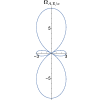Contested Facts: The Politics and Practice of International Fact-Finding Missions
IF 3.4
1区 社会学
Q1 INTERNATIONAL RELATIONS
引用次数: 0
Abstract
International organizations (IOs) dispatch fact-finding missions to establish epistemic authority by objectively and impartially assessing contested facts. Despite this technocratic promise, they are often controversial and sometimes even fuel international disputes that challenge the epistemic authority of the dispatching organizations. Although the twenty-first century has witnessed a proliferation of United Nations (UN) commissions of inquiry, they have received surprisingly little attention in international relations (IR) scholarship. How can we explain this trend and the successes and failures of fact-finding missions, which sometimes even backfire on the IO authority? Drawing on IR theories of delegation, epistemic authority, and IO field operations as well as public international law scholarship on commissions of inquiry, this article develops an analytical framework for studying the delegation, implementation, and dissemination of fact-finding missions. It theorizes how and under what conditions international fact-finding missions close or widen credibility gaps and thus help to establish, maintain, or weaken the epistemic authority of IOs. The article illustrates this framework with a case study of the Ad Hoc Working Group on the Human Rights Situation in Chile, sent by the UN Commission on Human Rights in 1974 to investigate allegations of human rights violations and torture. The conclusion outlines a comparative research agenda on international fact-finding missions for IR that contributes to the study of knowledge production in IOs and the enforcement of international norms.

有争议的事实:国际实况调查团的政治与实践
国际组织(IOs)派遣事实调查团,通过客观公正地评估有争议的事实来建立认识权威。尽管有这种技术官僚的承诺,但它们经常引起争议,有时甚至引发挑战派遣组织认知权威的国际争端。尽管21世纪见证了联合国(UN)调查委员会的激增,但令人惊讶的是,它们在国际关系(IR)学术界却很少受到关注。我们如何解释这种趋势,以及事实调查任务的成败,有时甚至会对国际刑警组织的权威产生适得其反的影响?本文借鉴国际关系授权理论、认知权威理论、国际调查组织实地行动理论以及调查委员会的国际公法学术,构建了一个分析框架,用于研究实况调查任务的授权、实施和传播。它理论化了国际实况调查团如何以及在什么条件下缩小或扩大可信度差距,从而有助于建立、维持或削弱国际调查团的认知权威。这篇文章通过对智利人权状况特设工作组的案例研究说明了这一框架,该工作组由联合国人权委员会于1974年派遣,负责调查侵犯人权和酷刑的指控。结论概述了国际新闻调查国际实况调查团的比较研究议程,有助于研究国际新闻组织的知识生产和国际规范的执行。
本文章由计算机程序翻译,如有差异,请以英文原文为准。
求助全文
约1分钟内获得全文
求助全文
来源期刊

International Studies Review
Multiple-
CiteScore
6.70
自引率
9.10%
发文量
62
期刊介绍:
The International Studies Review (ISR) provides a window on current trends and research in international studies worldwide. Published four times a year, ISR is intended to help: (a) scholars engage in the kind of dialogue and debate that will shape the field of international studies in the future, (b) graduate and undergraduate students understand major issues in international studies and identify promising opportunities for research, and (c) educators keep up with new ideas and research. To achieve these objectives, ISR includes analytical essays, reviews of new books, and a forum in each issue. Essays integrate scholarship, clarify debates, provide new perspectives on research, identify new directions for the field, and present insights into scholarship in various parts of the world.
 求助内容:
求助内容: 应助结果提醒方式:
应助结果提醒方式:


